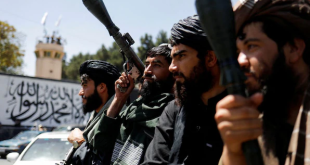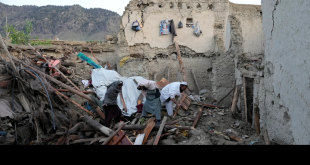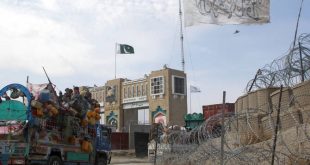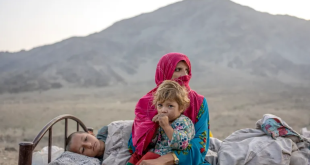Dr. Aniruddha Babar, Academician and Independent Researcher. Director, “Project Constitutional Justice- A People’s Initiative”, Tuensang, State of Nagaland, INDIA
AT Kabul: “In the heart of Asia, Afghanistan stands at a crossroads-where tradition shapes law, sovereignty defines power, and the world watches closely. As the nation redefines governance through an Islamic framework, its choices will determine not only its internal stability but also its place in the global order. Whether this path leads to long-term resilience or isolation depends on how effectively faith, governance, and diplomacy can be balanced in a changing world.”
Afghanistan’s governance under the Taliban in 2025 represents a stark departure from previous political models, embracing an Islamic framework over Western-style democracy. The Islamic Emirate, under the leadership of Shri. Amir ul-Muminin Haibatullah Akhundzada, has prioritised religious legitimacy over electoral processes, arguing that Islamic governance offers a more just and stable society. This approach has been met with mixed reactions-supporters view it as a restoration of Afghanistan’s cultural and religious identity, while critics argue that it limits political inclusivity and human rights. However, the Taliban maintain that their model is rooted in sovereignty, rejecting foreign-imposed systems in favour of a governance structure shaped by Islamic jurisprudence. The transition has underscored a broader ideological shift, positioning Afghanistan as a unique case in modern governance where Sharia law functions as the primary legal framework, rather than a supplementary system within a constitutional order.
Unlike past administrations, which operated under constitutions influenced by international models, the Taliban assert that the Quran and Hadith provide the ultimate legal framework, rendering a formal written constitution unnecessary. Taliban officials argue that past Afghan constitutions, including those from 1964, 1990, and 2004, were shaped by external pressures and lacked full adherence to Islamic principles. Instead, governance is now dictated by religious scholars and Islamic legal experts who interpret Sharia law as the foundation of state policies. While this ensures ideological consistency, legal analysts argue that the absence of a codified constitution may lead to ambiguity in legal interpretations, potentially complicating governance and foreign investment. Without a documented legal charter, there is also concern that policies may be subject to sudden shifts depending on interpretations by different clerics or theologians.
Security under the Taliban’s rule has seen significant changes. Afghanistan, once plagued by warlordism and insurgency, has witnessed an overall decline in large-scale conflict. The Taliban claim to have restored stability, eliminating criminal networks and enforcing strict law and order. However, the presence of resistance groups continues to pose challenges. While the Taliban’s counterinsurgency operations have been largely effective, occasional attacks indicate that security threats have not been entirely eradicated. The Taliban argue that their governance has brought greater stability than previous regimes, which relied on foreign military presence. A key factor in maintaining order has been the Emirate’s reliance on a centralised chain of command, ensuring that local governors and security forces operate under direct instructions from Kabul. Critics, however, highlight reports of political repression, arbitrary detentions, and limitations on public dissent.
Economically, the Taliban have sought self-sufficiency, aiming to reduce Afghanistan’s dependence on foreign aid, which historically came with political conditions. The government has focused on strengthening trade ties with regional partners such as China, Russia, Iran; leveraging Afghanistan’s strategic location and natural resources. The World Bank’s latest report of December 2024 indicates that while revenue collection has improved by 26% in recent months, initial declines in customs revenue and international banking restrictions have hindered broader economic growth. Despite efforts to stabilise the economy, Afghanistan remains under economic strain due to frozen assets, limited foreign reserves, and ongoing sanctions. In response, the Taliban have explored alternative financial networks, including informal banking systems like hawala, to facilitate trade and remittances outside conventional global banking frameworks. India, historically a key development partner of Afghanistan, has taken a more active approach in recent months, with Foreign Secretary Shri. Vikram Misri meeting Taliban officials in Dubai to discuss trade, connectivity, and regional stability. This engagement suggests that India is gradually shifting toward a pragmatic approach, balancing its concerns with the reality of the Taliban’s control. Proponents argue that prioritising economic independence is key to long-term sustainability, while critics caution that a lack of financial engagement with global institutions could hinder development.
A central point of international debate is the Taliban’s policies on women’s rights. The leadership insists that their regulations align with Islamic principles and Afghan cultural traditions, refuting claims that their restrictions are arbitrary. Some provinces have experimented with alternative education models, and the Taliban have expressed openness to discussions on structured, Sharia-compliant schooling for girls. However, international reports confirm continued limitations on women’s education, employment, and mobility. While the Taliban argue that their approach ensures social stability and religious adherence, human rights organisations and Western governments continue to pressure them to allow greater female participation in public life. While education policies have faced scrutiny, it is notable that some women continue to work in sectors such as healthcare, particularly in female-only medical facilities, where their roles are considered essential under Islamic guidelines.
During my research, it became evident that understanding the new Afghanistan under Taliban rule is essential for any country seeking to engage positively with its government. This requires an examination of its governing principles, legal structure, and socio-political policies. The Taliban have emphasised national sovereignty, resisting external influences that could undermine their Islamic governance model. Diplomatically, the Islamic Emirate has strengthened relations with regional players while maintaining a firm stance against Western-imposed conditions for recognition. A notable shift in Afghanistan’s diplomatic approach has been its increasing reliance on economic rather than military partnerships, particularly in infrastructure development with China under the Belt and Road Initiative. India’s recent engagement with the Taliban, marked by diplomatic discussions and economic cooperation, signals a strategic recalibration, with New Delhi recognising the importance of Afghanistan’s stability and growth in the region. While China, Russia, and Iran have engaged in pragmatic economic and political discussions with the Taliban, formal diplomatic recognition remains limited.
One of the Taliban’s strongest claims has been their fight against corruption, a long-standing issue in Afghanistan. Past governments struggled with entrenched corruption, ranking among the world’s most corrupt states. Since taking power, the Taliban have publicly committed to eliminating bribery, mismanagement, and embezzlement, implementing stricter oversight mechanisms. While Transparency International has not released conclusive new data on corruption under Taliban rule, reports suggest that while petty corruption may have declined due to stricter enforcement, concerns remain regarding transparency in other areas of governance and financial transactions. Nonetheless, anecdotal reports indicate that bribes and extortion at lower levels of bureaucracy, such as in passport offices and customs checkpoints, have reduced compared to previous administrations.
Afghanistan’s current governance model is a significant ideological shift from previous Western-backed administrations. By rejecting electoral democracy in favour of Islamic governance, the Taliban have charted a path that prioritises religious legitimacy over political pluralism. Supporters argue that this ensures a stable and morally guided system, while critics caution that long-term governance may require adaptations to balance ideological principles with practical governance needs. Given Afghanistan’s historical trajectory, the Taliban’s governance model stands as a unique framework rooted in Islamic principles, national sovereignty, and people-centric governance. In the coming years, this approach will be tested in its ability to sustain long-term stability, drive economic progress, and establish a structured international presence while upholding its ideological foundation. The Islamic Emirate’s commitment to its vision remains firm, yet its engagement with evolving domestic priorities and the broader geopolitical landscape will be pivotal in shaping the nation’s future. The development of comprehensive socio-economic policies, with a focus on welfare and inclusive governance, will play a crucial role in reinforcing public trust and institutional legitimacy.
The road ahead is one of great significance-a defining moment in history where the strength of governance, the resilience of a people, and the spirit of a great nation will determine Afghanistan’s rightful place in the world. With a clear vision and a determined drive for progress, Afghanistan stands at the threshold of a new era-one where justice, equality, stability, prosperity, and sovereignty can converge to forge a future of promise and strength.
 Afghanistan Times
Afghanistan Times




